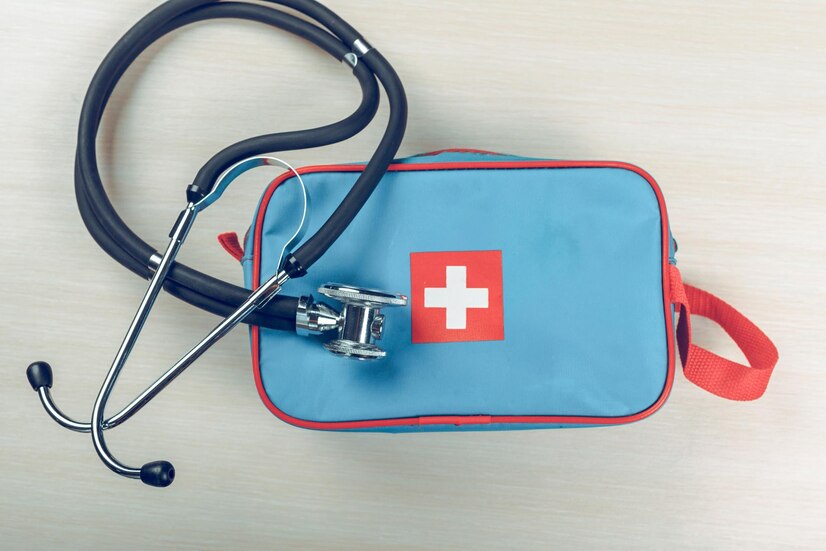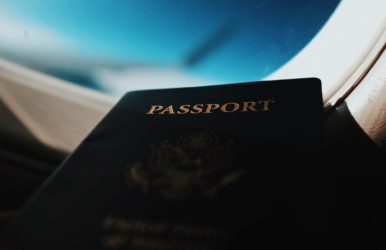How To Apply For A Passport Online In This Pandemic, And Which Countries Allow You To Travel Now?
BY Abdul Aziz Jul 1, 2021
The rapid growth in the economy and spreading globalization have led to increased travel demand for passport and passport-related services from the past few years. In 2010, MEA (Ministry of External Affairs) had launched an online Passport Seva for the people's convenience. All Indian citizens who want to depart from India must have a valid passport or any valid travel document. Under the Passports Act 1967, the Government of India issues various types of passports and travel documents. For example, the Ordinary citizen Passport, Official Passport, Diplomatic Passport, Emergency Certificate, and Certificate of Identity are the most frequent forms of identification during traveling. These passports and the identifications are presented as the ID card of the Indian citizens. Below Are The Steps To Apply For A Passport Online: - Log in to the official passport website to apply for passport online. Enter the accurate details in the passport application and then select the passport office you want to visit. Once the details have been filled in, enter the Captcha characters, and after that, click on the register button given below. Now log in to the Portal with the registered ID. After that, click on the applying for a fresh passport/re-issue of the passport. Fill in the details correctly on the screen and click the submit button. Before clicking on pay, you can calculate the fee for an online passport service through an online fee calculator. After that, click on schedule the appointment and pay the fees. These will let you book your appointment, and you have to pay a fee for booking the appointment. Click the print for the receipt to print your appointment receipt for the online passport application. You will also receive your appointment details on your mobile via SMS. Now, you can visit the nearest Passport Office with the print of the appointment letter. List Of Documents Required For Applying For A Fresh Passport For Adult Or Minor: - For Adults: Aadhar Card Pan Card Driving License Birth Certificate Voter's ID Bank Passbook Utility Bill (Electricity bill / Telephone bill / Water bill) Proof of Gas Connection Parents Passport Copy Rent Agreement Ration Card Spouse's passport copy Certificate from Employer of the company on letterhead Matriculation Certificate 10th Certificate, School leaving certificate 12th certificate, Higher Educational Pass Certificate Student ID Card issued by any Govt. Recognized Institutions Date of birth of policyholder issued by a public life insurance company Income Tax assessment order Landline or Postpaid mobile bill For Minor: Parents self-attested copies of the passport Proof of current address Photo of passbook of running bank account Birth certificate Date of birth of policyholder issued by a public life insurance company Aadhaar card or e-Aadhaar PAN Card School leaving certificate/ Secondary school leaving Certificate School or university 10th standard mark's card Which Countries Allow You To Travel Now? Traveling in this pandemic is risky, but still, some people love to travel abroad with the decrease in Covid cases in certain countries. Some travelers already kept packing their luggage to leave the country and are prepared to head towards their much-needed vacation. Several foreign countries are opening their doors for Indian visitors. Here is the list of the countries where you can visit as an Indian citizen. 1.Russia: Covid Requirement: Passengers entering the Russian Federation must carry a printed negative COVID-19 PCR test result issued at least 72 hours before their arrival. That means the testing is compulsory before traveling. 2.South Africa: Covid Requirement: Passengers 5 years of age and older entering South Africa must submit a negative PCR COVID19 test result no later than 72 hours before travel departure from the first boarding point. 3.Iceland: Covid Requirement: Upon arrival, a valid vaccination certificate and negative PCR test are required. Passengers will be tested for COVID19 at the border upon arrival, but if the test result is negative, then quarantine is exempted. 4.Egypt: Covid Requirement: During travel, you do not require the documents. After arriving in Egypt, all visitors will undergo a health check, and all visitors must complete a health declaration. Beginning August 15, all arrivals must submit to a negative RT PCR test within 72 hours. 5.Afghanistan: Covid Requirement: Passengers arriving at the airport do not need to have an RT PCR test certificate or don’t have to give the Covid 19 test. However, they are advised to isolate themselves at home for 14 days upon arrival. 6.Mauritius: Covid Requirement: Passengers over 18 years of age must be fully vaccinated against Covid19. They must take an RT PCR test 5-7 days before departure; only those with negative results can enter the island country. 7.Dubai: Covid Requirement: From the start of Dubai travel, passengers departing from India must take a COVID19 Rapid Antigen or Rapid PCR test at the airport before departure. 8.Mexico: Covid Requirement: There are no tests required. Upon arrival, a completed health form should be submitted to the immigration department. The online health form is including every detail of the travelers, including the nationality and other information. 9.Bahrain: Covid Requirement: Passengers must have a COVID-19 PCR or RTPCR test negative at least 48 hours before departure. Unless they have a rehabilitation certificate, they will also need to take a second test upon arrival. It should be isolated until the test results are received. Conclusion: Register or apply for a passport online to travel worry-free to any country affected by the pandemic. During the pandemic, traveling to different countries is always a little bit risky. Your health and safety are getting the top concern. Keeping a safe distance and maintaining the correct protocol is alltime the best way to stay away from the infection. Read Also: Travel Insurance: What Is It And Why You Should Get One Canadians Can Forget Their Winter Vacations Despite COVID-19 Travel Insurance












